Over the weekend, I was very tired. That deep fatigue that comes to me when I’m due for my period. On Saturday, around 5 p.m., I laid down on the living room carpet to stretch but then found myself stuck in corpse pose. I was dozing, so I quickly pulled myself onto the nearby couch and got comfortable. I’m not a napper, typically, but during this time of the month, there is a day or two when I feel like this. I didn’t quite fall asleep, but I drifted in and out of that sweet in-between space. It felt so good. I had been fighting that fatigued feeling all day, and now I was finally able to indulge it.
The window was open, and the summer smells of the day were blowing in, the breeze gently moving strands of my loose hair. Something steered my sleepy thinking towards a scene in my novel. Over the last few years of working on it, I've found that my novel is the best distraction. Whenever I’m having trouble falling asleep at night, plagued with negative thoughts or frustration, I simply steer my mind towards something about my novel—the characters, the story as a whole, a specific scene—and I live there until I fall asleep. If anything, this novel has been the best way to ward off the racing thoughts that can haunt me before bed.
As I was lying on the couch, the scene began to unfold but in hyper-focus. I saw two of my characters interacting but as if I were watching them in a movie with partially arresting cinematography. You know, the kind where the colors are rich with warm tones, where the camera zooms into the grass, swaying in the breeze while the crickets chirp. Or the close-up of an actress pulling a strand of hair behind her ear while walking on the beach, the waves crashing in the distance, the volume heightening through the TV speakers as if we were there. Well, I felt like I was there, watching my two characters move and speak to each other. I felt closer to them than I had in my many months and months of writing. There they were, in the kitchen together, the soft glow of the late afternoon lighting filtering through the window. This is a scene that happens towards the beginning of my book, in Act 1, which I haven’t been thinking about as much since recently finishing my third draft. It felt so good to be there with them in the beginning before everything goes to shit. But I was more shocked at how real they felt in this type of “deep thinking” I was experiencing. I think I fell asleep for at least a few minutes, and when I woke, I realized I had made sense of these two characters in some major ways. I rubbed my eyes and fumbled for my notebook, desperate to remember what I had experienced.
And then it happened again.
On Sunday, after house chores and errands, I found myself sleepy again before my husband and I were going to make dinner. I didn’t nap like I had the day before, but I laid there again with my eyes closed, my brain mushy from the long day. Another scene popped into my head, one that had been a particular struggle in my last draft. In this daydreaming session, I watched my characters again. One of my characters said something to my main character that spiraled into such a revealing conversation that I felt stunned by it. I felt so right, a natural progression to other events I had already written. My tired brain had found the missing puzzle piece I needed. Again, I scribbled in my notebook as quickly as I could.
Both of these instances could have happened because I’ve stepped away from my novel for about three weeks now. I haven’t written much fiction at all. Maybe this was the break my creativity needed in order to see the story for what it is. But I also can’t help but note the premenstrual timing.
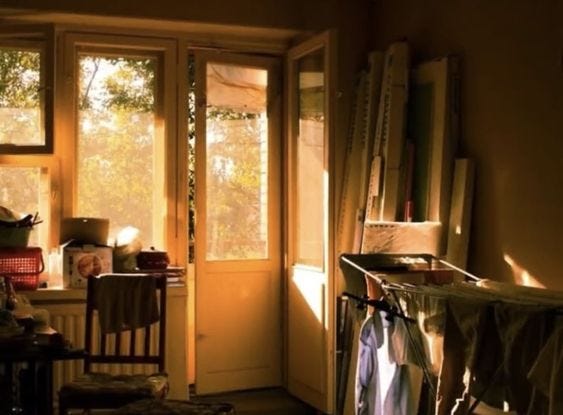
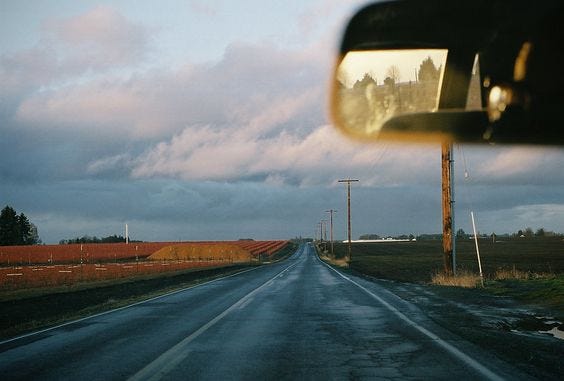
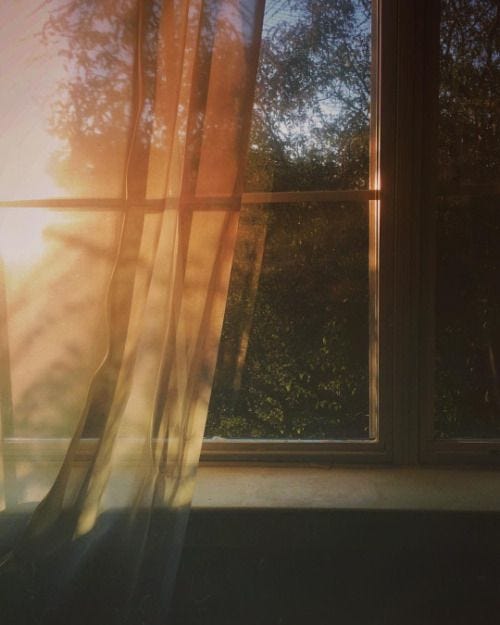
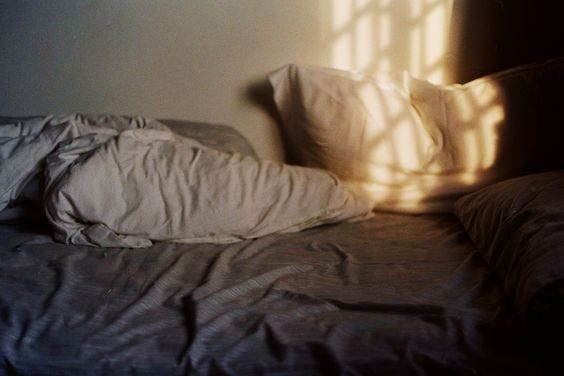
I’m not on birth control and have been tracking my cycle for several years. I’m blessed with regularity, but I also have done the hard work of taking my temperature each morning and learning about how my cycle operates. It’s fascinating. When I learned it in my twenties, I felt furious that I hadn’t been taught about how my own body functioned earlier in my life. My cycle told me so much about myself.
My luteal phases are particularly hard. I’m frustrated and irritable, my mood is low, and I’m more prone to dropping things. (Seriously, what the hell?) These emotions inevitably come out in my writing. I have mentioned many times to my writing partner how it’s during the 12 odd days of my luteal phase (the longest phase in the menstrual cycle. What the fuck is up with that?) that I doubt myself the most. The work feels more like an uphill battle. I have to do a lot more positive and affirming self talk.
Towards the end of this phrase, these feelings unloosen their grip on me, and I start to feel tired. But at least I’m calmer now, more content. When I finally get my period, sure, the first day or two are crampy, but I feel back to my normal levelheaded (?) self. I feel gratitude again, and I see everything in a brighter hue than from when I was under that dark luteal cloud.
If this is my cycle every month, how can I not acknowledge its impact on my work as a writer?
In Eckhart Tolle’s The Power of Now, he says that generally speaking, “it is easier for a woman to feel and be in her body, so she is naturally closer to Being and potentially closer to enlightenment than a man.” He says that it’s during menstruation that women can best remove themselves from ego, tap into their true nature, and use it for enlightenment.
Okay, I’m listening.
He goes on to say that “when you know that the menstrual flow is approaching, before you feel the first signs of what is commonly called premenstrual tension, the awakening of the collective female pain-body becomes very alert and inhabits your body as fully as possible.”
Now, I’m not claiming to be searching for enlightenment here (although maybe someday), but I find this fascinating, especially at this time in my writing life. As I head towards revisions for draft four, I’m not only thinking about what I need to do on the page—you know, the outlining, the notecards, the Scrivner doc—but also what I need to accept and understand about myself. I don’t want to be subject to my “pain body” every month and lose faith in my work. Even though I’m aware of where these feelings come from, I think I can handle them better. I’ve been telling my writing partner for months now that I need to make a list of affirmations for myself specific to my whole menstrual cycle. Most of the deep, inner work mantras will be for the damn luteal phase, but I bet if I stopped to think about my writing work cyclically, there would be something to affirm each day. If I’m able to accept the emotional and physical pain that comes each month instead of identifying with it (which, by the way is the collective pain body of women, all the violence and repression our bodies have suffered throughout history. Did you know we all hold that inside us?! Holy shit), then I will be able to be connected to my truer self which I believe is my creative self.
Tolle says that “menstruation will then become not only a joyful and fulfilling expression of your womanhood but also a scared time of transmutation when you give birth to a new consciousness.”
Was I giving birth to a new consciousness on the couch last weekend?
Who knows.
But I think that in my fatigue, brought on by premenstrual tension, I was able to tap into something beyond what my waking, critical brain was capable of, which opened up a creative possibility for me. I like the idea of willingly acknowledging my cycle within my writing process instead of fighting against it.
As I do this inner work, I can’t help but see the connection in my novel draft itself. During car rides or when I daydream about the story on a walk, I’ve been resisting my natural inclination to look elsewhere. Oftentimes, if I’m stuck on a scene, for example, or maybe a character arc, I think I need to add to the story, be it a new character, or a new exciting event. But now, I’m taking stock of what I have in these last three drafts. I believe my creative consciousness has already laid the groundwork for me. The seeds have been planted. I just need to harvest them in the faith that will grow together and weave themselves into the story I’m trying to tell.
Maybe I’ll give birth to some more freeing ideas.

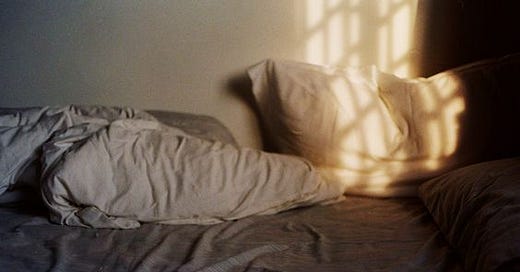


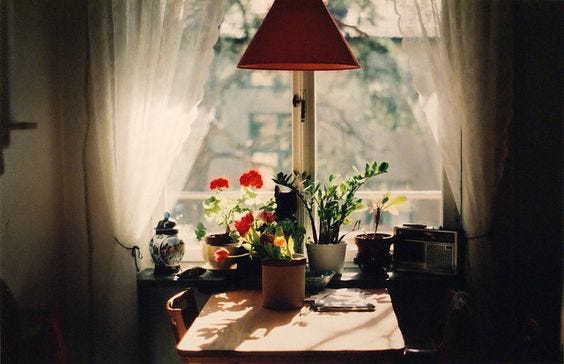
I'm obsessed that you wrote about the luteal phase--my arch nemesis but also something I've come to revere as a good informational time where suppressed needs coming roaring to the surface. I find that when I cut sugar from my diet PMS is better but who wants to do that, I know. Thanks for writing about this!
This is fascinating. I do most of my creative writing early in the morning before everyone else wakes up, and I'm often too tired to wake up earlier during my period. I'll need to pay closer attention to what lands on the page during different phases too!